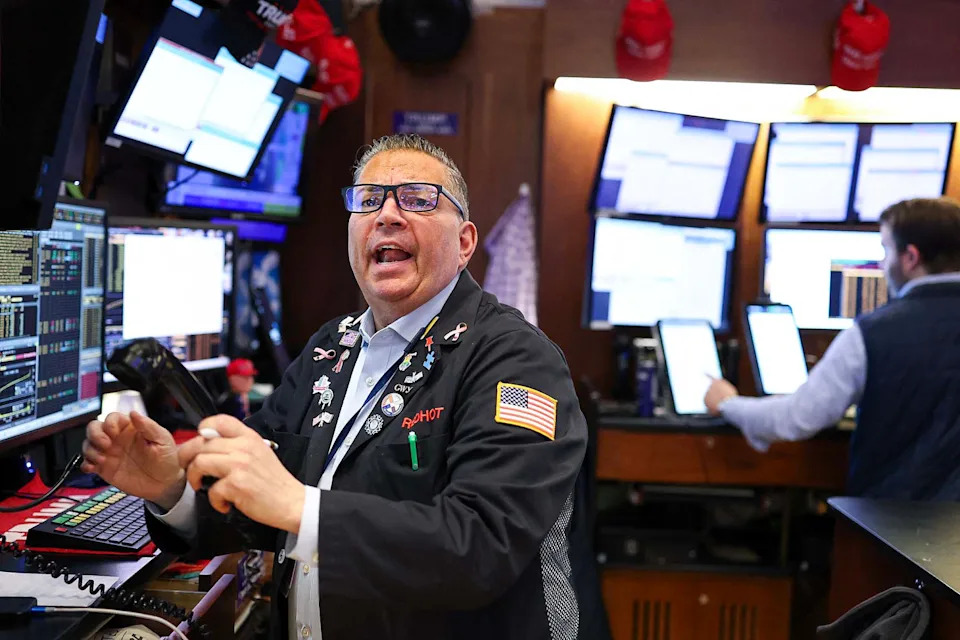Investors flee U.S. stocks as markets react sharply to Trump's tariff plan

Global markets reacted sharply and swiftly after President Donald Trump revealed his much-anticipated tariff plans Wednesday, with investors fleeing U.S. stock indexes and stocks of companies that rely on global supply chains plummeting.
S&P 500 futures, which indicate where it is likely to open Thursday, plunged 3%. Nasdaq 100 futures sold off by more than 4%, and Dow futures slid about 1,000 points, or 2%.
Those indexes just endured their worst quarter in years in large part because of growing concern about the economic impacts of Trump's expected tariff plan.
Global markets also posted significant losses just minutes into their trading days. Japan's Nikkei 225 index plunged more than 4.1%, and South Korea's Kospi stock average fell more than 2.5%. Australia's ASX 200 dipped about 2%. ETFs (exchange-traded funds) that track specific countries, such as India, tumbled about 3%, while one that tracks Europe slid 2%, and the China ETF fell 3.8%.
But initial market indications early Wednesday evening were that many investors had expected Trump's tariffs to be far less expansive. In addition to a flat 10% tariff on all trading partners, Trump announced reciprocal tariffs that would tax many trading partners more than 20%.
"President Trump just finished his tariff speech at the White House and we would characterize this slate of tariffs as 'worse than the worst case scenario' the Street was fearing," Dan Ives, an analyst at the investment firm Wedbush Securities, wrote in a note sent Wednesday.
That could make things very difficult for large U.S. companies that are deeply integrated into the global economy. Shares of Apple dropped nearly 7%, Amazon 6% and Walmart 5%.
Nike, which produced 50% of its footwear in Vietnam last year, plummeted 7% in after-hours trading.
Shares of dollar store chains, which import many of their most popular goods, also faced steep losses. Five Below plunged 13.5%, and Dollar Tree sold off more than 11%.
Asked whether he was concerned by the market moves, Treasury Secretary Scott Bessent told Bloomberg Television that he has “learned not to look at what goes on during after-hours markets.”
Bessent added that the Nasdaq has a "'mag7' problem, not a MAGA problem," referring to seven large tech stocks often called the "magnificent 7."
General Motors and Ford dropped less than 1%, but Jeep owner Stellantis tumbled almost 2%. Stellantis has more manufacturing in Europe than the other U.S. automakers.
Goldman Sachs estimated that the price of a foreign-made car could soar by up to $15,000 under Trump's tariffs. Even a vehicle assembled in the United States could face a price hike of up to $8,000, according to the bank's analysts.
This article was originally published on NBCNews.com

